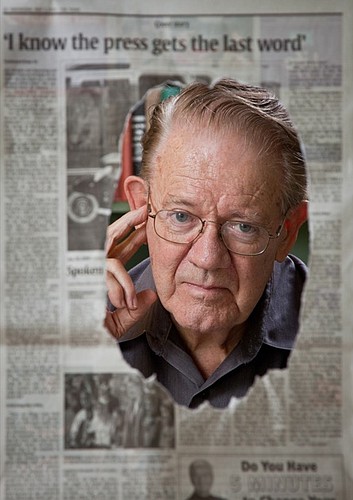Longtime New York newspaperman Ron Smith thought he had the makings of a unique public relations company when he moved to Sarasota five years ago.
Smith's theory was that a firm made up of journalists talking to journalists would ease small business owners' biggest headache when it came to public relations: Getting newspaper and magazine reporters to write about their company.
The idea has been more successful than even Smith thought it would be. The firm, Sarasota-based JournalistPR, has picked up a stream of clients in Sarasota and Bradenton the past six months and Smith expects its base of 15 full-service clients to double in the next few years. The company, with six freelanced-based employees, had just under $1 million in annual revenues in 2009.
“I've been simply flabbergasted that I have been able to build a successful agency in this economy,” Smith says. “But I think it's the right idea at the right time.”
Adds Smith: “I didn't realize the massive strength of having nothing but journalists. But I do know.”
The company, staffed locally with former newspaper and magazine reporters from Sarasota, Detroit and New York, offers some branding and marketing services for clients, such as writing and designing brochures and pamphlets. But its niche has been in getting its clients into local, regional, national and industry trade publications.
Smith provides a money-back guarantee for all clients who sign on to the company's full package for a year, which could cost up to $25,000. The guarantee is that JournalistPR promises to write at least one press release a month for the client and that the company will have at least six stories written on it in a year.
Smith says the guarantee has helped ease small business owner's recession-era worries. But it also recently came back to haunt him when one client said a story that was published in an online only publication should be counted as half a story.
Despite that hiccup, most JournalistPR clients seem to be satisfied with the service. For example, Darrell Turner, founder of Bradenton-based Turner Tree & Landscaping, says Smith's firm has helped get his company into several regional construction trade publications.
“It was one of the best investments I've ever made for my company,” says Turner, who interviewed at least six other local PR firms before he chose JournalistPR. “I consider marketing like this a necessity right now the way the economy has been.”
Smith has one client in Washington D.C., but the rest of the work is in either Tampa or the Sarasota-Bradenton market. In addition to contacts with the local press, the company uses a database of 5,000 publications to find places to pitch stories.
JournalistPR's recent success surprises Smith in more ways than beating back the economic downturn. It's also a surprise because he never pegged himself as a PR guy, going back to his fascination with printing presses when he was a young child in the 1950s in Boise, Idhao.
That fascination led to several jobs in newspapers. He was a reporter for the Boise bureau of the Salt Lake Tribune and later worked on the copydesks of the New York Times and the Newark Star-Ledger in New Jersey. He also supervised reporters and editors in the New York office of United Press International, a global news agency that dates back to 1907.
Smith took a job with an advertising firm in New York City in the 1980s and never returned to newspapers. He moved to Sarasota with his wife about five years ago, when he decided to launch JournalistPR.
Fourth Estate
Ron Smith, a former newspaper and wire service reporter and editor, founded a public relations firm in Sarasota five years ago. He now bills that firm, JournalistPR, as the only PR firm in the region staffed completely by journalists.
Here are Smith's tips on what makes a good press release:
• Headlines, like billboards, shouldn't be longer than six words;
• The lead, usually the first one or two lines, should be where the crux of the news is. “Don't bury it,” says Smith. “Ask yourself what the main news is and make it your lead.”
• The shorter the lead, the better. Smith says the first line and paragraph should be no more than one and a half lines in normal formatting. “Short leads are next to Godliness,” says Smith.
• Avoid editorial words. Lines like “XYZ Corp. is proud to announce” don't add anything to the text.
• Contact information should be at the end, not the beginning. “Let [editors] get right into your story, so they can decide if it's worth printing,” says Smith. “Don't confuse at the top.”
— Mark Gordon






